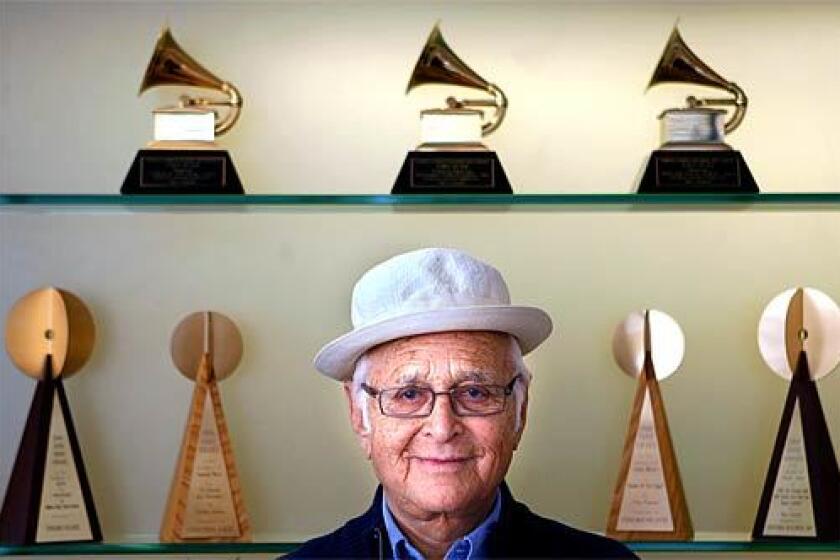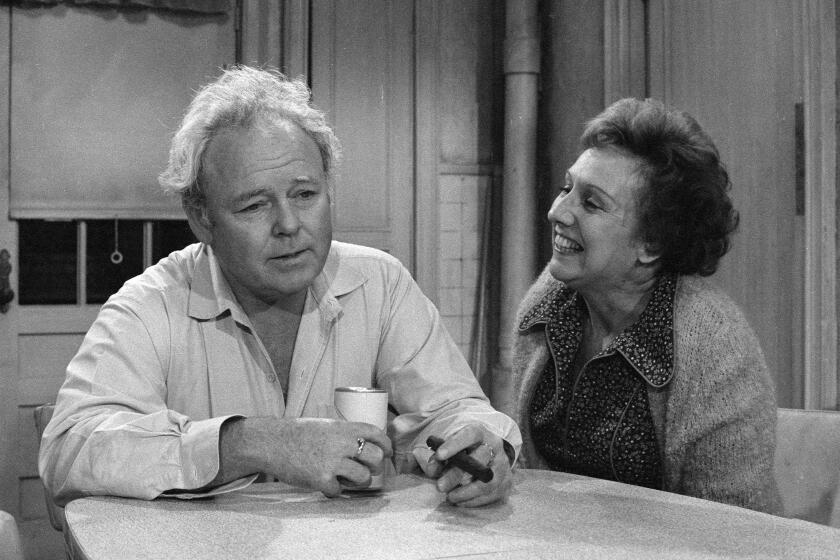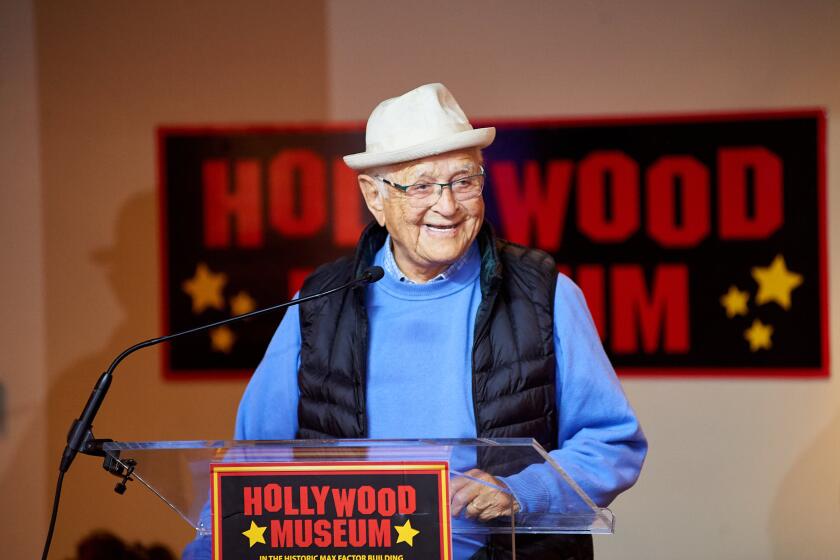Norman Lear took television to new heights and we took it personally
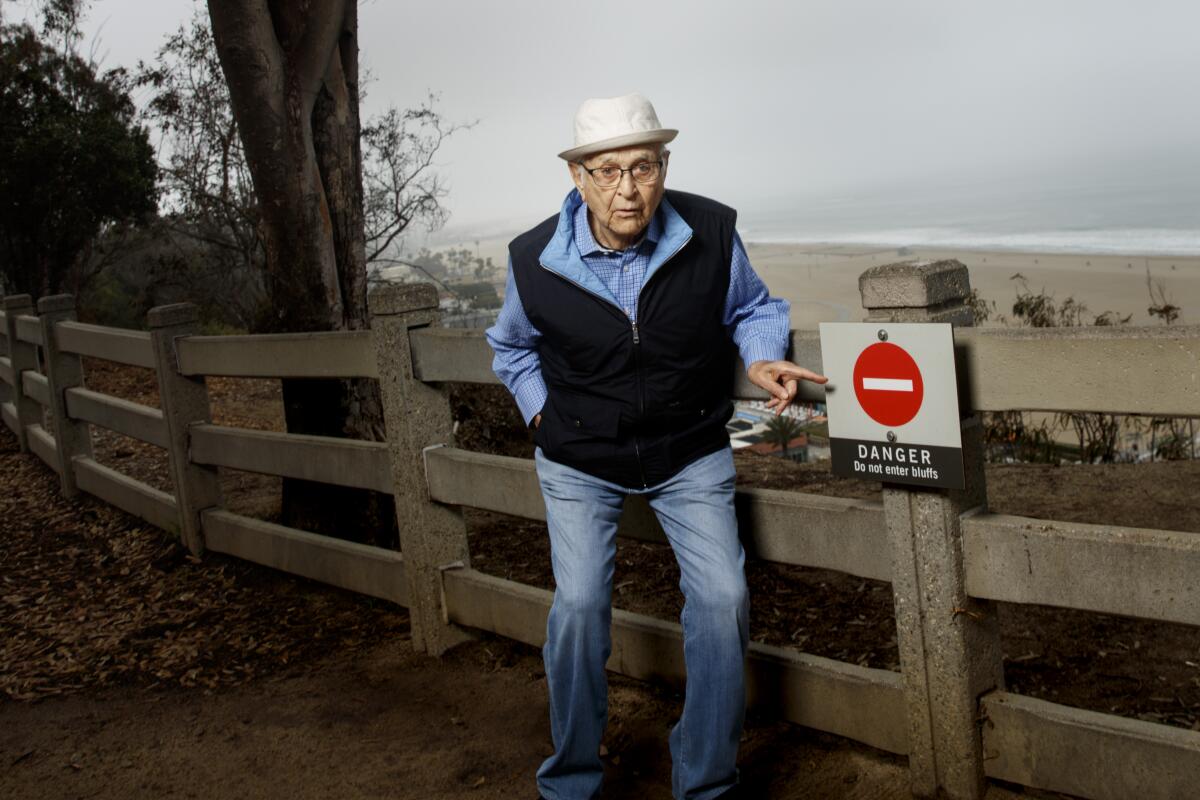
- Share via
Norman Lear, the legendary television producer who died Tuesday at 101, left behind a legacy that stretched beyond the dozens of television shows he developed during a seven-decade career. His work broke new ground, raised the bar for what the medium could aspire to and connected with viewers on a personal level. The Times staff share their memories of this one-of-a-kind talent and the impact his programs had in their lives and on the world.
Long after its initial run was over, “All in the Family” was a mainstay of days spent with my great-grandmother in the mid-’90s, in a living room still decorated as if it were 1978. Sitting in the lower apartment of a metro Boston duplex — my grandparents’ place just upstairs — those afternoons of cookies, milk and Archie Bunker forged a connection with my own family’s working-class history, like one of the overstuffed photo albums that populated my childhood come vividly, exaggeratedly to life. We may not have had an Archie, an Edith, a Gloria or a Michael of our own, at least not exactly, but the profound bonds of love that brought them together despite political differences and petty fights felt familiar indeed. It wasn’t until much later that I learned the name Norman Lear, but in this sense he was a part of the family all along. — Matt Brennan
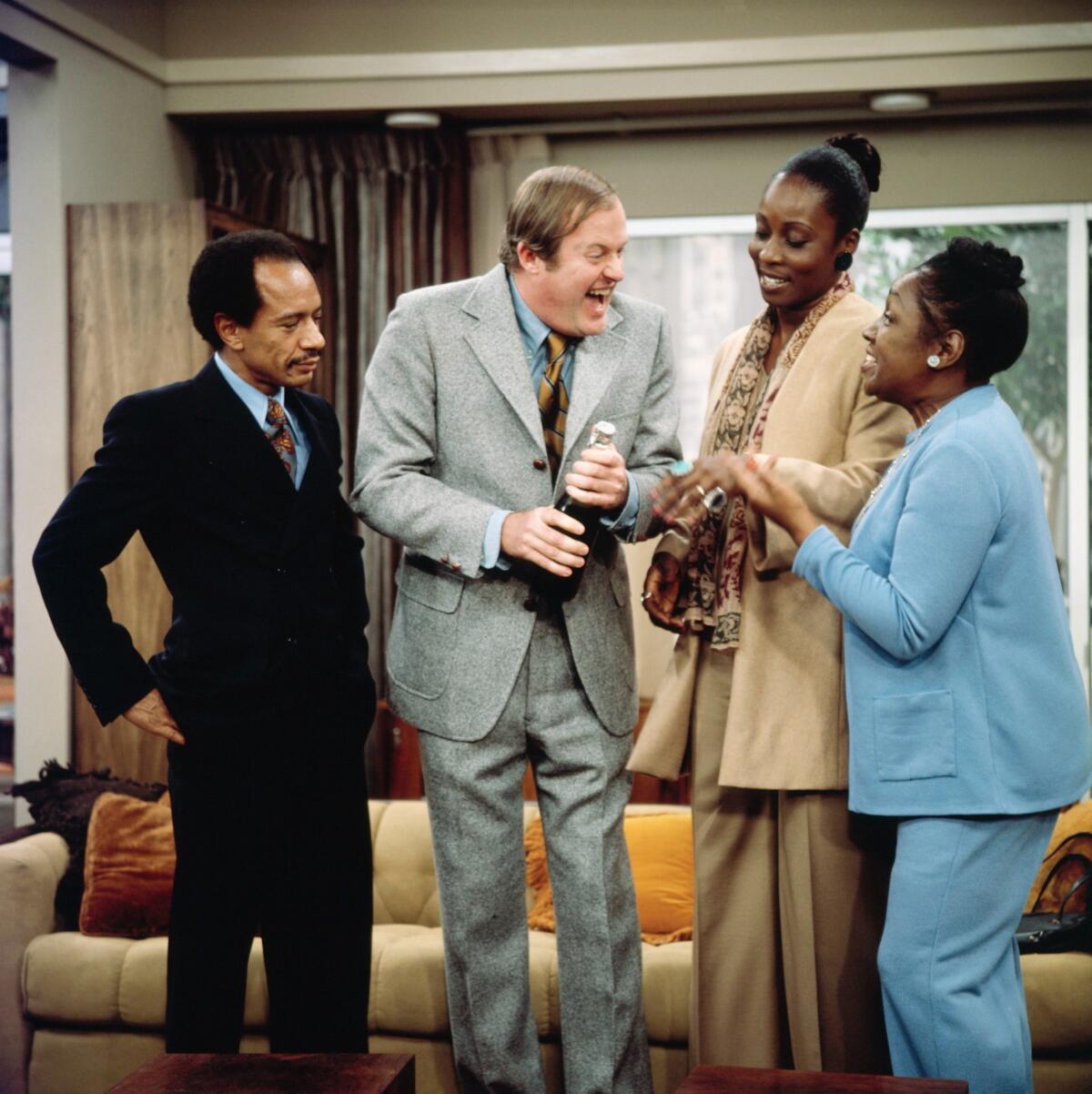
Jimmie Walker can never outlive JJ. Marla Gibbs can never outlive Florence. Those are incontrovertible facts. But that’s just part of the power of Norman Lear’s television. The shows for which people I know remember key lines, even using them as comment fodder on internet posts, helped illustrate the lows (“Good Times”) and the highs (“The Jeffersons”) of the socioeconomic plight of Black people in America. (And the perpetually hilarious, yet mostly broke: “Sanford and Son.”) The shows brought change in TV that was hopeful about leading to societal change. But sadly, some of Florida Evans’ lines can still be sternly spoken in 2023. The “Good Times” matriarch played by Esther Rolle was known for often telling people how it is and how it should have been, especially about that social construct called race. And some of the hurdles faced by penthouse-living, dry cleaner empire-ruling George Jefferson are still in place, but they never stopped Sherman Hemsley’s self-assured strut. The portrayals of strength, perseverance — and my God, the joy — shaped how many white Americans regarded Black people as a whole. For better or for worse. — Dawn M. Burkes
The most radical television show of my late youth ran nightly in syndication through the Bicentennial Year and halfway into 1977 — Lear’s “Mary Hartman, Mary Hartman,” a satirical soap opera starring Louise Lasser as an Ohio housewife, hair in pigtails, disaffected nearly to the point of catatonia. Depression had not previously been the subject of comedy, but it seemed appropriately apposite to a year of national self-celebration. Spinoff “Fernwood 2 Night,” which also aired nightly, was a world-building semi-improvised faux talk show that teamed Martin Mull and Fred Willard as its host and co-host. Cheap, fast and working outside of network oversight and economic calculations, these shows wore “cult” like a medal. — Robert Lloyd
The multiple Emmy-Award-winning writer-producer and liberal political activist revolutionized prime-time television in the 1970s with groundbreaking, socially relevant situation comedies such as ‘All in the Family,’ ‘Maude’ and ‘The Jeffersons.’ He was 101.
Norman Lear was perhaps the most democratic storyteller of the 20th — and 21st — century. In a world often warped by the exposed brick and perfect fashions of “aspirational professionals,” Lear kept it real, showcasing families in which the parents actually worked, coming home tired and often cranky; where money existed and was often tight; where parents and children clashed in ways that resonated with millions. You never laughed at a Norman Lear show; you laughed with it. — Mary McNamara
By bringing a situation comedy “filmed before a live audience” into my home several times a week when I was young, Norman Lear taught me more about theater than probably anyone else. Yes, I learned that comedy could have a social conscience. But I also learned basic lessons in acting, comic timing and story development. Theater takes place in a public forum, and Lear created that experience nationally for TV viewers. He knitted the country together during the Watergate years by making us laugh at our divisions. He showed us how foolish our ideological certainties could be, when the only real certainty is that we’re human. — Charles McNulty
In his comedies, Norman Lear made disagreement a form of patriotism. Now, the society he depicted is so polarized that love of debate seems quaint.
I was in high school when “All in the Family” was launched in prime time. It brought my dad and his hippie kids together. What an excellent concept for a show during those trying times. What great writing. The kids couldn’t stand Archie but sometimes he blurted something that resonated with all of us, like “I’m not prejudiced. I hate everybody!” — Russ Mitchell
I came to know Norman Lear’s work by reading about TV online. You can’t get too far without seeing reference after reference to classics like “All in the Family” or “The Jeffersons.” But as a TV watcher, my appreciation for him deepened with the 2017 reboot of “One Day at a Time” on Netflix. I remember reading critics who sang its praises as an adaptation of his work, this one centering on a multi-generational Cuban family who lives in an Echo Park apartment. I took in every episode and recommended it to my family. It became a show we all bonded over. The Alvarez family felt real and their struggles felt familiar. It’s a testament to Lear’s legacy that audiences resonated with his work decades later. — David Viramontes
Rob Reiner, Kerry Washington, Jimmy Kimmel and Rita Moreno were among the actors and producers to shared their condolences and appreciation for legendary TV writer and producer Norman Lear, who died Tuesday at 101.
More to Read
The complete guide to home viewing
Get Screen Gab for everything about the TV shows and streaming movies everyone’s talking about.
You may occasionally receive promotional content from the Los Angeles Times.
